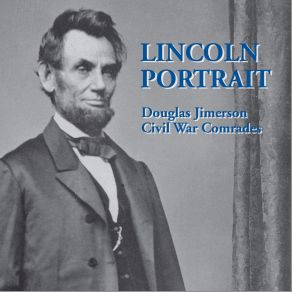Lincoln Portrait
Download links and information about Lincoln Portrait by Douglas Jimerson. This album was released in 2008 and it belongs to Country, Songwriter/Lyricist genres. It contains 15 tracks with total duration of 45:08 minutes.

|
|
|---|---|
| Artist: | Douglas Jimerson |
| Release date: | 2008 |
| Genre: | Country, Songwriter/Lyricist |
| Tracks: | 15 |
| Duration: | 45:08 |
| Buy it NOW at: | |
| Buy on iTunes $9.99 | |
Tracks
[Edit]| No. | Title | Length |
|---|---|---|
| 1. | Hail to the Chief | 0:42 |
| 2. | Barbara Allen | 3:19 |
| 3. | Jim Crack Corn | 3:12 |
| 4. | Skip to My Lou | 2:35 |
| 5. | Flow Gently Sweet Afton | 4:08 |
| 6. | Wait for the Wagon | 3:19 |
| 7. | Gentle Annie | 3:26 |
| 8. | Hail, Columbia | 1:11 |
| 9. | Lincoln and Liberty | 2:06 |
| 10. | Just Before the Battle, Mother | 5:31 |
| 11. | Yankee Doodle | 3:15 |
| 12. | Home, Sweet Home | 2:45 |
| 13. | Dixie's Land | 4:08 |
| 14. | Auld Lang Syne | 4:29 |
| 15. | Taps | 1:02 |
Details
[Edit]Musicologist and tenor Douglas Jimerson has recorded three Abraham Lincoln-related discs for his own AmeriMusic label: Abraham Lincoln Sings On!, Lincoln's Favorite Music, and this one, Lincoln Portrait. In this enterprise, Jimerson is joined by his Civil War Comrades: Bob Clayton, who plays banjo, mandolin, and guitar and sings; bugler Jari Villanueva; and Ellen Anderson, who primarily plays hammered dulcimer, a little mandolin, and contributes a pleasant, restrained backing vocal. Lincoln is a good subject for recordings of historic American music as he loved music and there is plenty of documentation of his choices, preferences, and contact with musicians. Several of these pieces will remain familiar to Americans still, though — apart from standard, public ceremonial pieces like "Hail to the Chief" and "Taps" — generally through family and community singing rather than through anything heard in the mass media, unless one is a devotee of "A Prairie Home Companion."
The Civil War Comrades' arrangements are peaceful and pleasant, and Jimerson utilizes admirable restraint and sings with ease and flexibility; he has the horse sense to know that such songs were not meant to sound like something out of I Pagliacci. The group plays in a fashion that might remind some very expert listeners of the (non-protest oriented) folk music of the 1960s rather than the 1860s, but it is important for Americans to reclaim songs like these as their heritage and a fully historic style of delivery is not the way to achieve that end. The Comrades sound, at times, a little less than polished; there is at one point in "Gentle Annie" a moment when the guitar drops out and only the hammered dulcimer is heard and it doesn't sound like a passage arranged to sound that way, but a moment where the guitarist dropped a pick or something and stopped long enough to pick it up. In popular music such as this, however, that isn't a big deal. Moreover, Jimerson and his Comrades find ways to deal with the often noxious — and historically completely necessary — repertoire of minstrel material and to deliver it in an attractive and friendly fashion, such as it would have been received in the 19th century. For those searching for the popular musical heritage of Lincoln's era, AmeriMusic's Lincoln Portrait will prove a comprehensive and fully user-friendly package.~Uncle Dave Lewis, Rovi